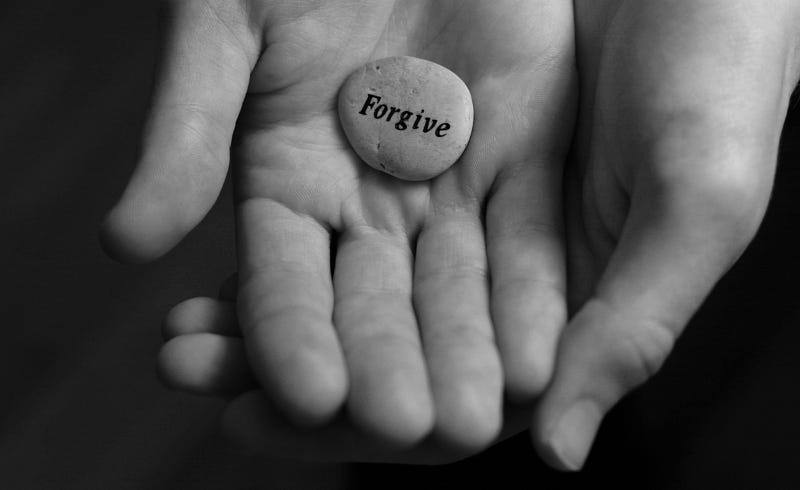Forgiveness is a deep and sometimes difficult journey that has a significant impact on our mental, emotional, and even physical health. Choosing to release feelings of resentment, bitterness, and thoughts of revenge is a conscious and deliberate choice. Forgiveness is a powerful tool that can help individuals let go of the grip that past wrongs have on their lives, even if it doesn’t mean condoning or excusing harmful behavior. Throughout our lives, there are four individuals who play a significant role in our personal development and finding inner peace: ourselves, our parents, those who have caused us pain, and those who have never sought forgiveness. Gaining insight into the reasons behind forgiving these individuals can lead to profound personal growth.
1. Learning to Forgive Yourself

Self-forgiveness is a difficult but essential aspect of personal growth. Many individuals find it challenging to cope with emotions of guilt, shame, and regret regarding past errors and perceived shortcomings. It’s important to let go of negative emotions in order to foster personal growth and find happiness. Self-forgiveness is about acknowledging and embracing your flaws, gaining wisdom from your errors, and progressing with kindness and empathy towards yourself.
The Importance of Self-Forgiveness: Mental Well-being: Holding onto guilt and self-blame can have negative effects on mental health, including depression, anxiety, and low self-esteem. Self-forgiveness can be beneficial in reducing these symptoms and fostering emotional well-being.
- Self-improvement: Recognizing and forgiving your errors enables personal growth and the ability to make improved decisions moving forward. It encourages a mindset of growth and resilience.
- Building Strong Connections: Forgiving yourself can have a positive impact on your relationships with others. It can help you become less defensive and more compassionate, leading to a better understanding between you and the people around you.
Learning to Forgive Yourself: Recognize Your Errors Take ownership of your actions without offering justifications. Gain insight into the factors that contributed to the breakdown of your relationship.
- Take time to reflect and learn. Take a moment to think about what you can gain from this experience. How can you apply this knowledge to improve your decision-making in the future?
- Be kind to yourself and practice self-compassion. Be sure to give yourself the same level of compassion and empathy that you would extend to a close friend facing a similar circumstance. It’s important to acknowledge that everyone makes mistakes and that these experiences are a natural part of being human.
- Embrace Imperfection: Recognize that striving for perfection is unrealistic and that making mistakes is a normal part of the human experience. Emphasize growth rather than striving for flawlessness.
2. Healing Your Relationship with Your Parents

Our parents have a profound impact on our early experiences and development. While some individuals have healthy and supportive relationships with their parents, others may harbor unresolved issues stemming from neglect, abuse, unattainable expectations, or other forms of mistreatment. Coming to terms with the actions of your parents can be a challenging and deeply emotional journey. However, it is crucial to embark on this path in order to free yourself from the cycle of pain and promote your own personal growth and well-being.
The Importance of Forgiving Your Parents: Emotional Freedom: Letting go of resentment towards your parents can grant you emotional liberation, allowing you to fully embrace the present and future.
- Healing Past Hurts: Forgiveness has the power to heal deep-seated wounds and lessen the emotional burden of previous traumas.
- Enhancing Current Relationships: By addressing and resolving underlying issues from your upbringing, you can cultivate healthier relationships not only with your parents but also with others. Forgiving them can be a crucial step towards this improvement.
Understanding Your Parents’ Perspective: Gaining Insight: Take a moment to consider the situation from your parents’ point of view. Reflect on the difficulties and constraints they may have encountered.
- Recognize Your Emotions: Give yourself permission to fully embrace and express the emotions that come with your past relationships. Engaging in journaling, confiding in a trusted friend, or considering therapy can provide valuable support.
- Establishing Boundaries: Forgiveness does not imply accepting harmful behavior. Developing strong boundaries is crucial for safeguarding your well-being and nurturing harmonious connections.
- Emphasize the Positives: Take a moment to think about the positive aspects of your relationship with your parents and the happy memories you have together. It can be beneficial to gain a different perspective and foster forgiveness.
3. Learning to Forgive Those Who Have Caused You Pain

Throughout life, individuals may cause us pain, whether it be intentional or unintentional. It can be emotionally draining and harmful to our well-being when we hold onto anger and resentment towards those who have wronged us. Letting go of the past doesn’t mean condoning their actions, but rather freeing yourself from the emotional burden they’ve placed on you.
The Importance of Forgiving Those Who Have Caused You Pain: Emotional Liberation: Releasing anger and resentment can unburden you from the weight of negative emotions.
- Taking Control: Forgiveness gives you the power to manage your emotions and responses instead of letting someone else’s actions dictate how you feel.
- Enhanced Well-being: Cultivating a positive mindset and letting go of anger and resentment can have a positive impact on overall physical health, promoting conditions such as lower blood pressure and a stronger immune system.
Tips for Forgiving Those Who Have Hurt You: Recognize the Impact: Take a moment to acknowledge the pain caused by the actions of others and how it has affected your life. Recognizing and acknowledging your emotions is a crucial part of the forgiveness journey.
- Show Understanding for the Offender: Take into consideration the circumstances that may have influenced the individual’s actions. It’s important to remember that nobody is perfect, and understanding this can help you view their actions in a more compassionate light.
- Managing Emotions: Discover effective methods for managing and expressing your emotions in a constructive manner. This can include engaging in physical activities, exploring your creativity, or seeking guidance from a therapist.
- Stay in the Present: Make an effort to focus on the here and now, leaving the past behind. Practicing mindfulness can assist in maintaining a sense of presence and concentration.
4. Learning to Forgive Without Receiving an Apology

Forgiving those who have caused you pain without any acknowledgment or apology can be incredibly challenging. Not having closure can be difficult to overcome, but harboring resentment can hinder your ability to find peace and heal.
The Importance of Forgiving Those Who Never Apologized: Finding Personal Peace: Letting go of anger towards someone who has never apologized allows you to break free from a cycle of bitterness. Forgiveness is a powerful tool that can bring you inner peace and help you move forward.
- Embracing a Realistic Outlook: Recognizing the possibility of not receiving an apology can assist in relinquishing impractical expectations and directing your attention towards your personal journey of healing.
- Embracing Personal Strength: Deciding to forgive someone who hasn’t apologized allows you to assert your authority over your emotions and overall happiness, rather than relying on external validation.
How to Find Healing in Challenging Situations: Embrace the Truth Recognize that it may be difficult to receive the apology or acknowledgment you hope for. Direct your attention towards what you have power over—your own reaction and recovery.
- Discover Inner Peace: Discover a sense of inner peace by finding your own ways to achieve closure. This could involve writing a letter to someone, even if you choose not to send it, or participating in rituals that represent the act of letting go.
- Show Empathy: Try to understand the person’s perspective and consider their own challenges and limitations that may prevent them from apologizing.
- Make Yourself a Priority: Concentrate on activities and relationships that bring you happiness and satisfaction. Surround yourself with people who uplift and encourage you.
Final Thoughts
Forgiveness can be a transformative tool for healing and personal growth. By letting go of past grievances and finding forgiveness for yourself and others, you can free yourself from the emotional weight that holds you back from living a fulfilling life. Forgiveness can be a difficult journey, but it brings incredible rewards. It grants emotional liberation, enhances mental well-being, and fosters healthier connections with others. Embracing forgiveness enables one to progress with a lighter heart and a clearer mind, leading to a more peaceful and fulfilling life.